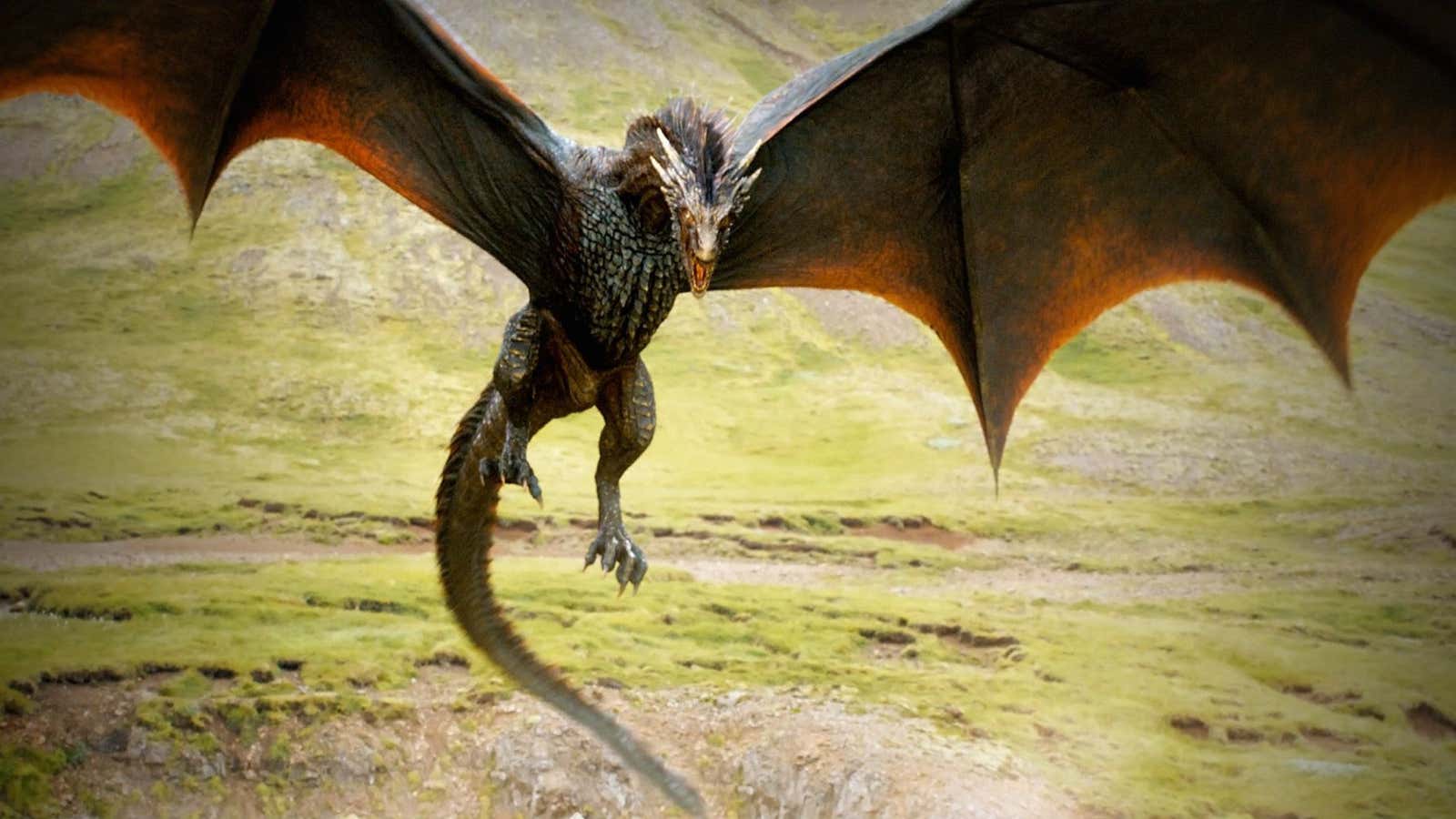Game of Thrones was a tough sell when HBO first began developing it a decade ago. Getting the green light on an intense fantasy series was fraught, in no small part because replicating the genre’s more magical elements requires a budget that would make most executives balk. Indeed, GoT is now the most expensive television show in history; each episode in season 8 cost HBO $15 million.
Earlier shows in the vein of GoT, particularly those in the 90s and early 2000s, were marked by low-budget effects and half-naked actors, making for a cheesy and porny cinematic experience. Shows like Conan the Adventurer, Beastmaster, and The Adventures of Sinbad ended up folding after a few seasons.
GoT took a different approach. Its first few seasons, which aired in the early 2010s, had limited special effects and the cast was made up of mostly unknown actors. The show relied on a strong script and political intrigue, embracing a serious, dramatic approach to fantasy TV—something that was largely relegated to film at the time. Ultimately, it helped change the perception of fantasy as a genre that turns kitschy when translated to TV.
Of course, the honeymoon hasn’t lasted forever. GoT’s critical reception took a nosedive after its writers outpaced their source material, and the showrunners have been accused of failing to fully lean into many of the magical tropes in George R.R. Martin’s books. But the show will still leave a legacy of bringing high fantasy into the world of gold-standard television. Yes, there’s sex and flashy CGI, but it’s the story of the throne games that audiences ultimately fell in love, and the straying from that story that many viewers objected to. More than 450,000 fans are now petitioning for a rewrite of the show’s final season, which they’ve accused writers David Benioff and D.B. Weiss of botching.
Backlash notwithstanding, GoT is still the biggest show on television, with a level of success that every network and streaming service is hoping to replicate. HBO took a super-nerdy, niche genre and translated it into a global, commercial behemoth, and media giants from Netflix to Amazon to Disney are following suit.
The next few years will see a whole slate of prestige fantasy epics coming to TV and streaming services. Netflix has four adaptations of epic fantasy series in the works, including C.S. Lewis’s The Chronicles of Narnia. Amazon, meanwhile, has five fantasy shows—as well as a slate of science-fiction series—being released in the next several years. Its biggest get is no doubt J.R.R. Tolkien’s The Lord of The Rings, which is already cleared for five seasons. Close behind is Neil Gaiman and the late Terry Pratchett’s Good Omens, which Amazon will adapt with a star-studded cast that includes Frances McDormand (as God), and Benedict Cumberbatch (as Satan).
HBO isn’t resting on its laurels either. The network has three Game of Thrones spinoffs in the works, one of which has already been cast. And His Dark Materials, based on Philip Pullman’s epic fantasy trilogy of the same name, is premiering on HBO later this year.
